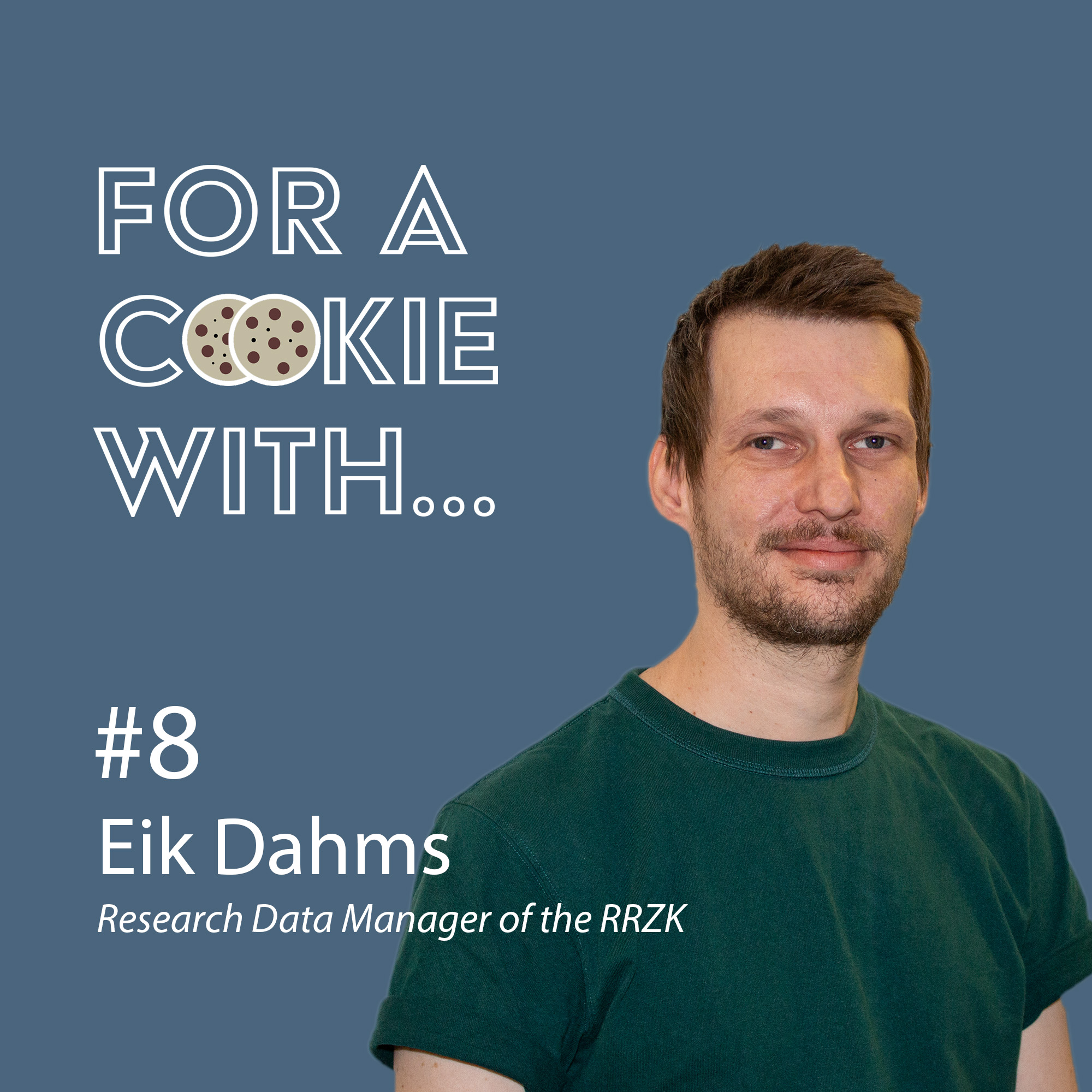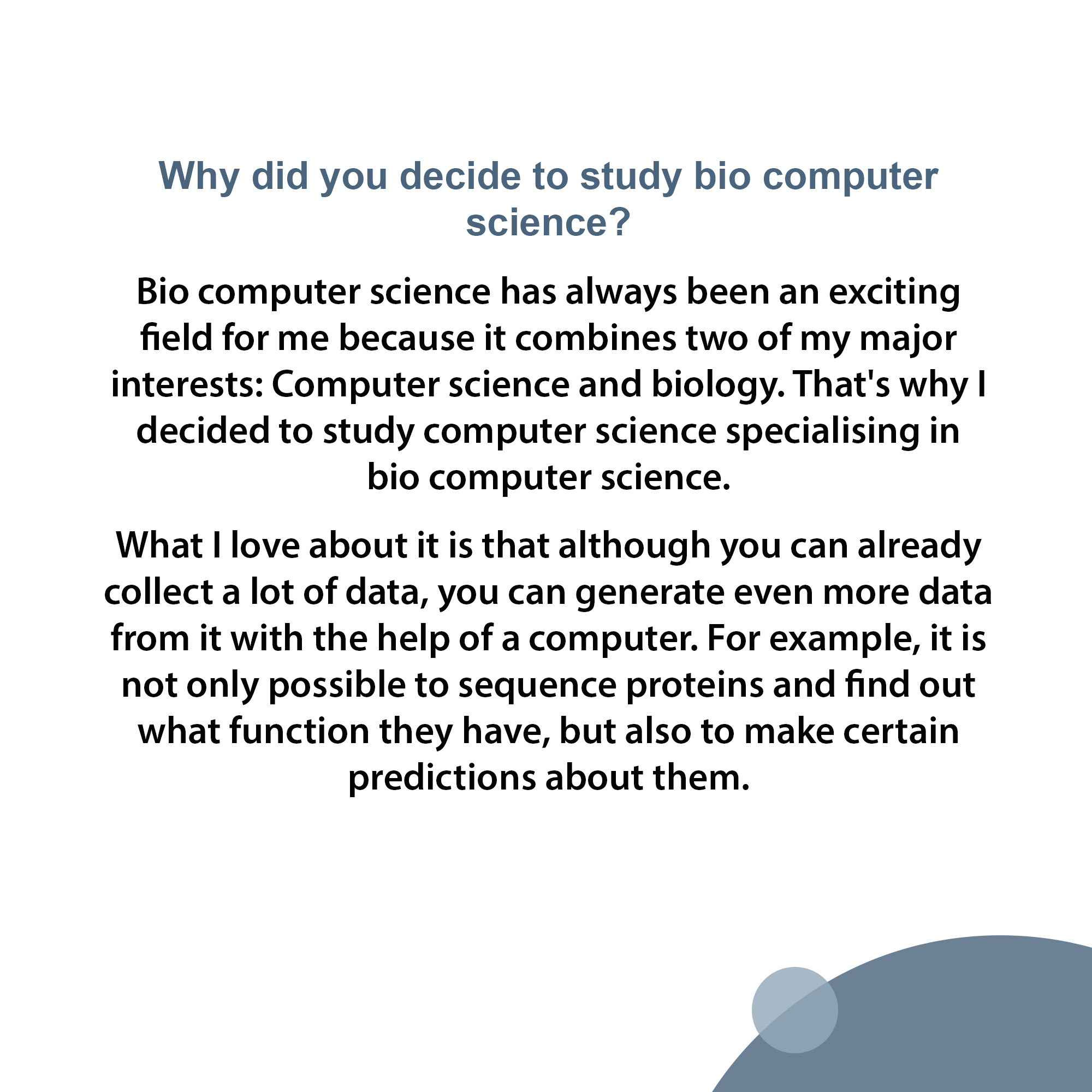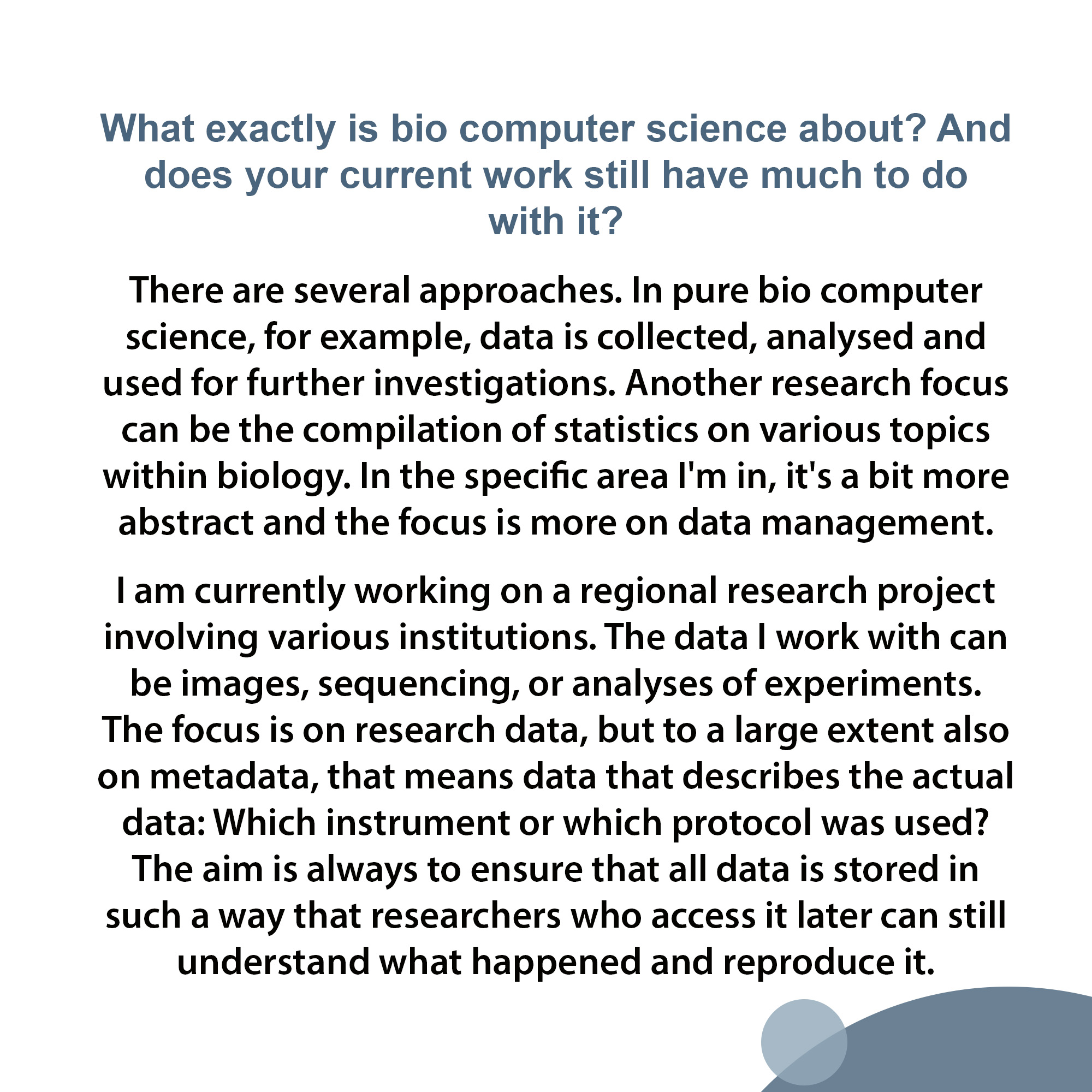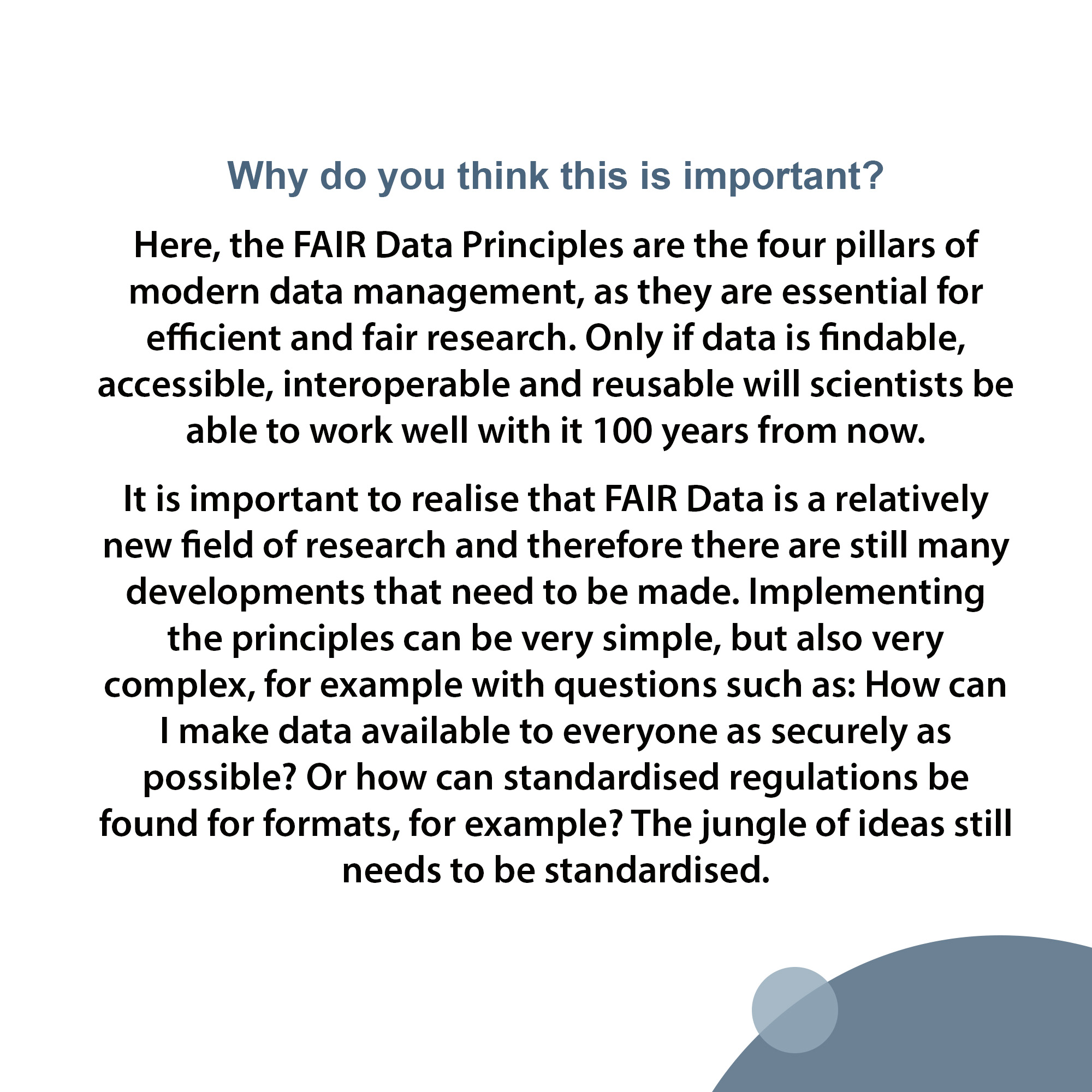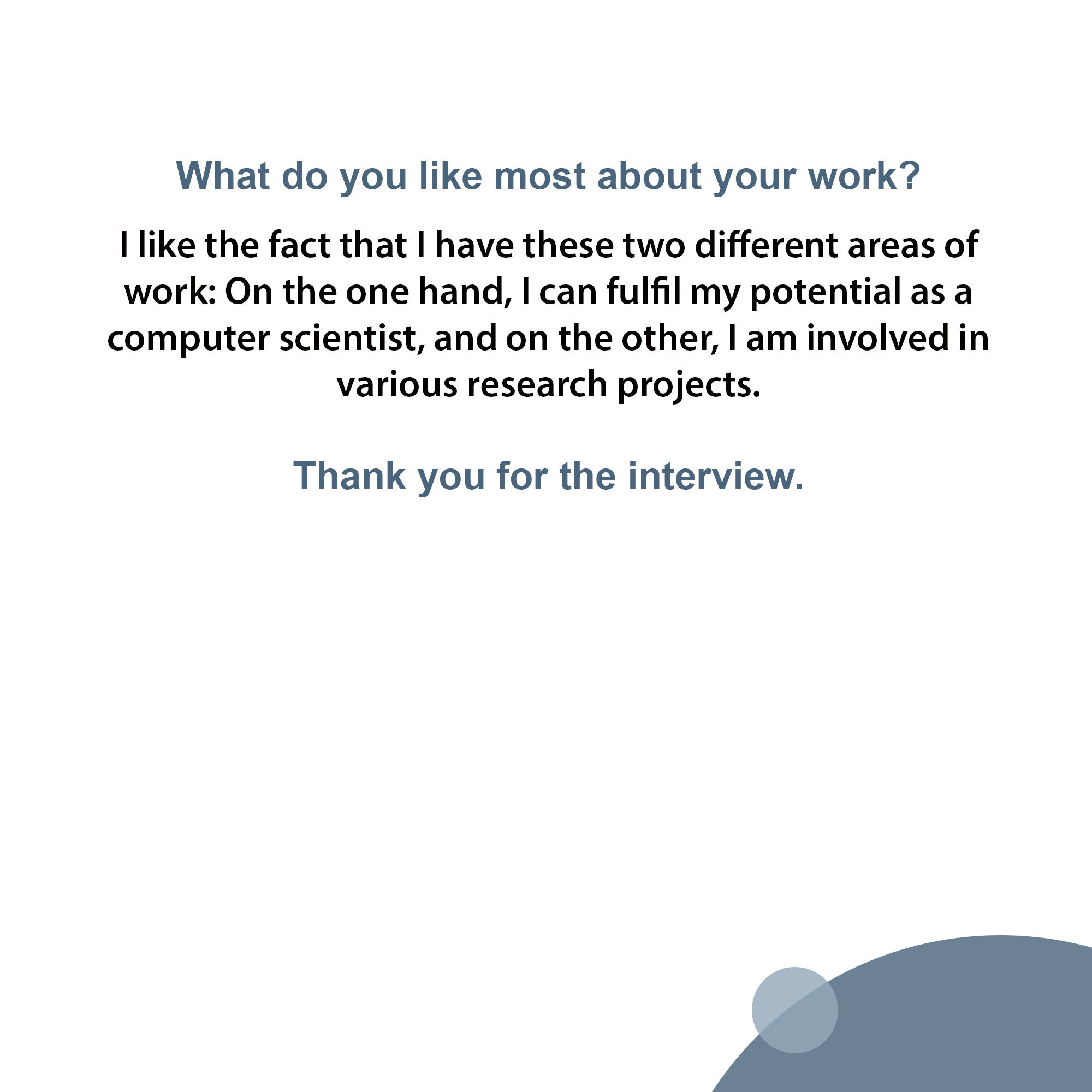Auf einen Cookie mit... #8
#8: Eik Dahms, Research Data Manager at the RRZK
Eik Dahms is at the RRZK part of the team of the transregional collaborative research project "TRR 341 Plant Ecological Genetics". The project focuses on investigations into the genetic variations of plants and their ability to adapt to environmental changes. The research data manager ensures that the data generated in the course of the project is processed and stored sustainably in accordance with FAIR principles. He tells us what FAIR data is about and how he got into his job today on "For a cookie with ...".
Question 1: Why did you decide to study bio computer science?
Bio computer science has always been an exciting field for me because it combines two of my major interests: Computer science and biology. That's why I decided to study computer science specialising in bioinformatics. What I love about it is that although you can already collect a lot of data, you can generate even more data from it with the help of a computer. For example, it is not only possible to sequence proteins and find out what function they have, but also to make certain predictions about them.
Question 2: What exactly is bio computer science about? And does your current work still have much to do with it?
There are several approaches. In pure bio computer science, for example, data is collected, analysed and used for further investigations. Another research focus can be the compilation of statistics on various topics within biology. In the specific area I'm in, it's a bit more abstract and the focus is more on data management. The data I work with can be images, sequencing, or analyses of experiments. The focus is on research data, but to a large extent also on metadata, that means data that describes the actual data: Which instrument or which protocol was used? The aim is always to ensure that all data is stored in such a way that researchers who access it later can still understand what happened and reproduce it.
Question 3: Why do you think this is important?
Here, the FAIR Data Principles are the four pillars of modern data management, as they are essential for efficient and fair research. Only if data is findable, accessible, interoperable and reusable will scientists be able to work well with it 100 years from now. It is important to realise that FAIR Data is a relatively new field of research and therefore there are still many developments that need to be made. Implementing the principles can be very simple, but also very complex, for example with questions such as: How can I make data available to everyone as securely as possible? Or how can standardised regulations be found for formats, for example? The jungle of ideas still needs to be standardised.
Question 4: What do you like most about your work?
I like the fact that I have these two different areas of work: On the one hand, I can fulfil my potential as a computer scientist, and on the other, I am involved in various research projects.
Interview Slides
Contact
If you have any questions or problems, please contact the RRZK-Helpdesk
